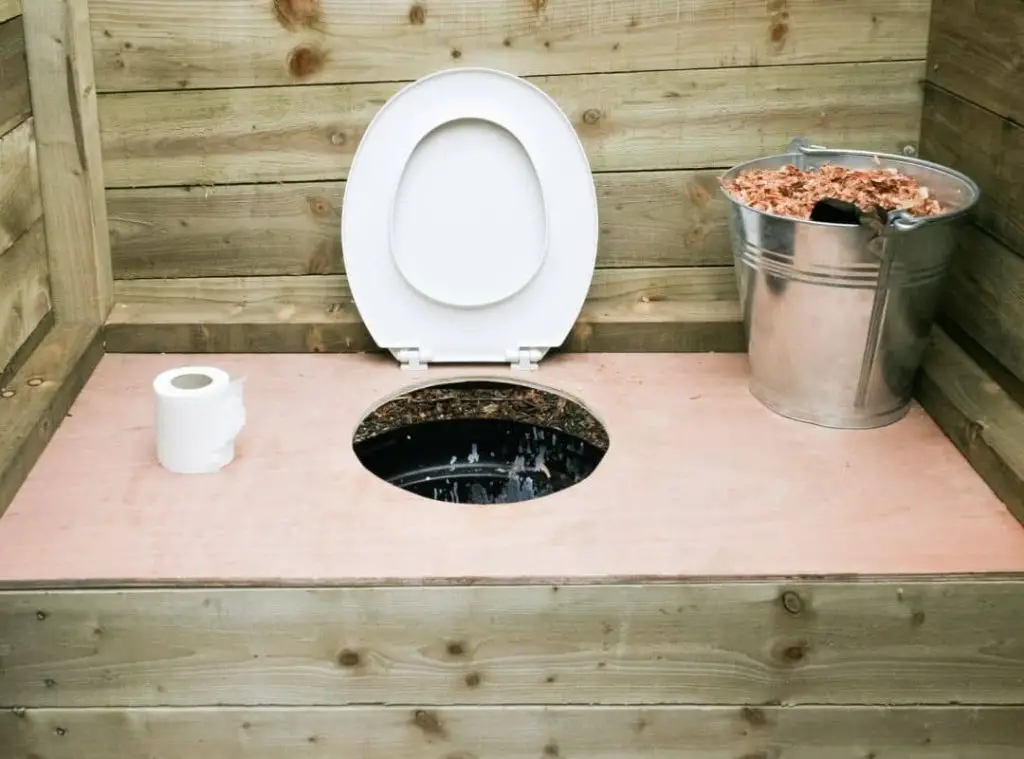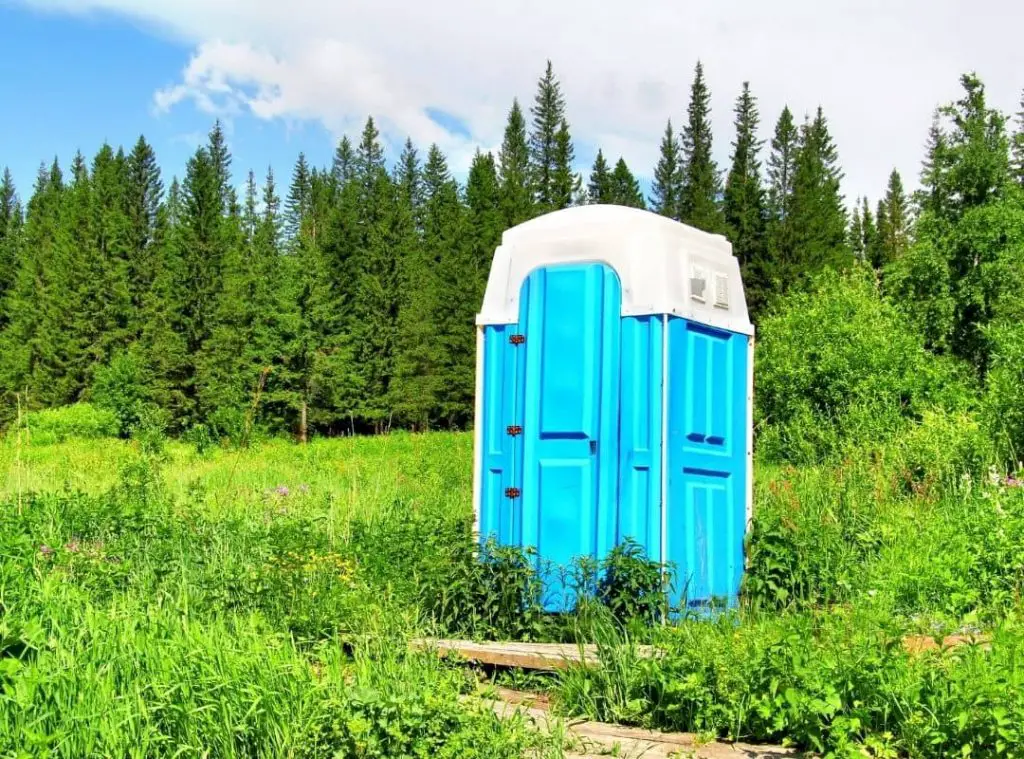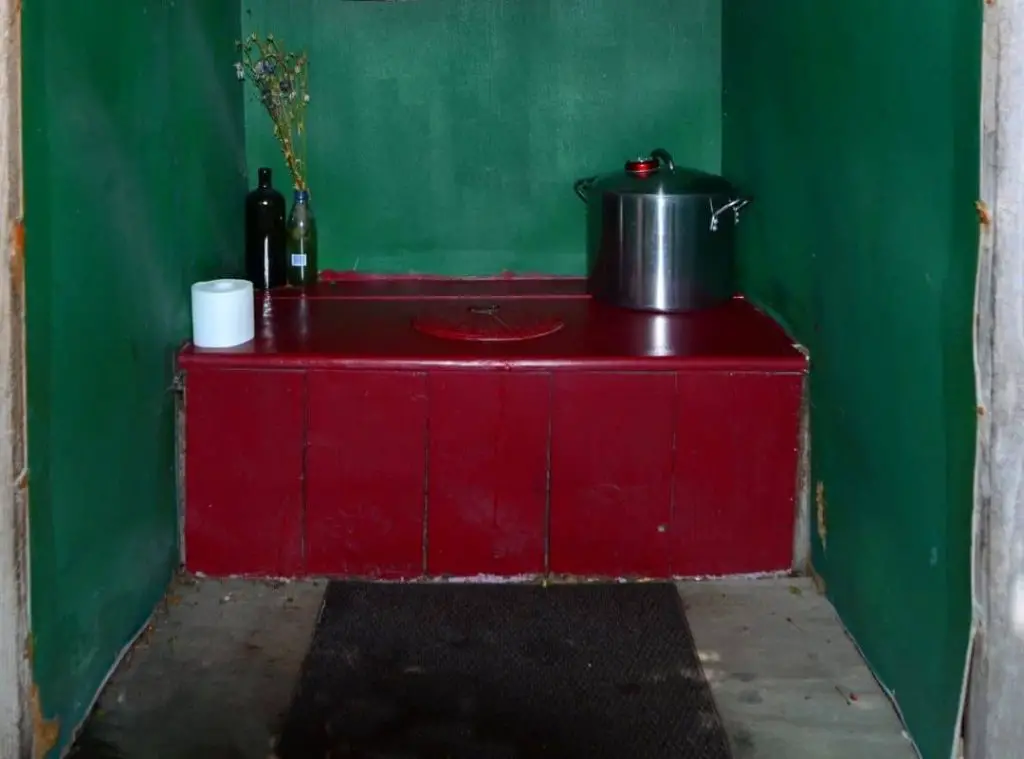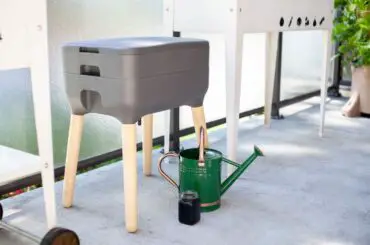Do Composting Toilets Smell? The answer to this question varies based on a few different factors. First, it is essential to know that all toilets – whether traditional flush toilets or composting toilets – will have some odor. This is because they are all dealing with human waste Keeping that in mind, let’s dig a little deeper and see if we can answer the question – do compost toilets smell?

Building green homes are popular and essential in today’s society. Homeowners want to know their homes are not only beautiful but also eco-friendly. One way to make your home green is to install a composting toilet. Composting toilets is becoming more and more popular as people learn about their many benefits. Not only do they help to reduce water consumption, but they also help to cut down on the amount of sewage and waste that goes into our landfills.
But one question that is often asked about composting toilets is whether or not they smell.
What Is A Composting Toilet?
Contents
- 1 What Is A Composting Toilet?
- 2 How do Composting Toilets work?
- 3 Do Composting Toilets Smell?
- 4 How To Keep Composting Toilet From Smelling
- 5 Advantages Of Composting Toilets
- 6 Disadvantages Of Composting Toilets
- 7 Do Composting Toilets Need Water?
- 8 Can You Pee In A Composting Toilet?
- 9 Can You Poop In Composting Toilet?
- 10 Do Composting Toilets Work In Cold Climates?
- 11 How Long Does A Composting Toilet Take To Work?
- 12 Where Does Toilet Paper Go In A Composting Toilet?
- 13 What If You Have Diarrhea In A Composting Toilet?
- 14 What Do You Do With The Compost From A Composting Toilet?
- 15 Conclusion
A composting toilet is a type of toilet that does not require water for flushing. Instead, it uses a process of decomposition and evaporation to break down human waste. Composting toilets come in various designs, but they all have one thing in common – they all have a chamber where the human waste is stored.
This chamber can be above ground or below ground, and it is typically vented to allow for proper aeration. You can use composting toilets in both residential and commercial settings, and they are an excellent alternative to traditional flush toilets, especially in areas where water is scarce.
How do Composting Toilets work?
Composting toilets work by using a process of decomposition and evaporation to break down human waste. Your waste is deposited into the composting chamber when you use the toilet. This chamber is typically vented to allow for proper aeration. Over time, the human waste will break down and evaporate, leaving behind a dry, composted material that can be used as fertilizer. The amount of time it takes for the waste to break down will vary depending on the type of composting toilet you have, the size of the chamber, and the amount of ventilation.
For a better understanding of how compost toilets work, here is a diagram of a compost toilet shared in ResearchGate.

Do Composting Toilets Smell?
Now that we know a bit more about composting toilets, let’s answer the question: Do they smell? You can not say either yes or no to this question. There are a few different factors that can affect how much of an odor a composting toilet produces.
1. The type of composting toilet you have
2. The size of the chamber
3. The amount of ventilation
4. The frequency of use
5. The type of waste
6. The maintenance
Let’s look closely at each of these factors.
The type of composting toilet you have
There are a few different types of compost toilets, each one producing a different amount of odor. One type of compost toilet is the bucket system. This toilet has a small chamber into which you deposit your waste. The chamber is typically not vented, which can cause odors to build up.
Another type of compost toilet is the ventilated improved pit (VIP) latrine. This type of toilet has a larger chamber that is vented to allow for proper aeration. Because of the ventilation, VIP latrines typically have less odor than bucket systems.
The size of the chamber
The chamber size can also affect the amount of odor a composting toilet produces. Smaller chambers are more likely to build up odors than larger chambers. This is because there is less space for the waste to decompose and evaporate.
The amount of ventilation
The amount of ventilation a composting toilet has can also affect the amount of odor it produces. Composting toilets that are not vented will typically produce more odors than those that are vented. This is because the ventilation helps to break down the waste and allows the odors to escape.
The frequency of use
The frequency of use can also affect the amount of odor a composting toilet produces. Toilets that are used more frequently will typically produce less odor than those that are used less frequently. This is because the waste has less time to build up and decompose.
The type of waste
The type of waste can also affect the amount of odor a composting toilet produces. You can compost more than just human waste in a composting toilet. For example, food waste, animal manure, and other organic material can also be composted. These materials can produce odors, so keeping them out of the composting chamber is important.
The maintenance
The maintenance of a compost toilet can also affect the amount of odor it produces. Compost toilets need to be emptied and cleaned on a regular basis. If they are not, the waste can build up and decompose, causing odors. Compost toilets also need to be adequately ventilated. If the ventilation is not adequate, the toilet can produce odors.
Usually, well-maintained compost toilets shouldn’t produce an odor.
How To Keep Composting Toilet From Smelling
If all is done well, and you still find your composting toilet smells, here are a few things you can do:
- Add more carbon-rich material to the compost chamber. This can help to absorb odors and keep the chamber from getting too wet.
- Empty the compost chamber more often. This will help to prevent the waste from building up and decomposing.
- Make sure the compost chamber is vented properly. This will help to allow the odors to escape.
- Maintain correct moisture level. Too much moisture will create odors, while too little moisture will prevent the waste from decomposing properly.
- Use a fan to ventilate the space around the compost toilet. This will help to remove any odors that may be present.
- Always keep the toilet lid closed so smells don’t come out.
- Use a natural cleaning product such as Bio-Kleen to clean the toilet.
- Use toilet papers after doing your… ahem… thing. Toilet papers help keep the moisture level down, which will reduce odors.
By following these tips, you can keep your composting toilet from smelling.

Advantages Of Composting Toilets
There are many advantages of composting toilets.
- They are environmentally friendly.
Composting toilets are environmentally friendly. They use less water than traditional toilets, and the waste is used as fertilizer.
- They are easy to install
Composting toilets are easy to install. They can be installed in any location and don’t require a septic system.
- They are low maintenance.
Composting toilets are low maintenance. They don’t require any chemicals or other regular treatments.
- They are self-contained
Composting toilets are self-contained. They don’t require any water or sewer lines.
- They are odorless
Composting toilets are odorless when maintained well. The waste is decomposed, so there are no odors.
- They are safe
Composting toilets are safe. The waste is not exposed to human contact, so there is no disease risk.
Disadvantages Of Composting Toilets
There are some disadvantages of composting toilets.
- They can be expensive.
Composting toilets can be expensive. They may cost more than traditional toilets.
- They require maintenance
Composting toilets requires maintenance. The toilet must be emptied and cleaned every month.
- They can produce odors.
Composting toilets can produce odors if they are not maintained properly.
- They don’t always save space.
Composting toilets doesn’t always save space. They may take up more space than traditional toilets.
- Sometimes they are hard to use
Sometimes composting toilets are hard to use. The user may have to squat or sit on the toilet to use it.
- They may not be allowed in some areas.
Composting toilets may not be allowed in some areas. Some codes and regulations may not allow them.
To find out if composting toilets are permitted in your area, contact your local code enforcement agency.
Do Composting Toilets Need Water?
No, composting toilets do not need water. They are dry toilets that use little to no water. Bacteria decompose the waste, so there is no need for water.

Can You Pee In A Composting Toilet?
You can, indeed, pee in a composting toilet. The urine will not decompose and must be emptied from the toilet regularly. For this, you need to have a urine diverter. A urine diverter is a device that separates urine from solid waste. This allows the solid waste to decompose without the urine.
Can You Poop In Composting Toilet?
You can, indeed, poop in a composting toilet. The waste will decompose and will not need to be emptied from the toilet on a regular basis.
Do Composting Toilets Work In Cold Climates?
Composting toilets can work in cold climates. The waste will decompose more slowly in cold temperatures, but it will still decompose. You can speed up composting in winter by adding more insulation to the composting chamber. This will aid in keeping the temperature warm enough for the bacteria to function. For this, you can add a heat mat or an electric blanket to the composting chamber.
How Long Does A Composting Toilet Take To Work?
Usually, any composting toilet will take about a year to break down the solid waste. If you use it regularly, it may take longer. The time it takes to break down the solid waste depends on the type of toilet, the amount of waste, and the temperature. However, you can speed up the composting process by adding compost worms to the composting chamber. Compost worms will eat the solid waste and help to break it down faster.
However, some people find it icky to have worms in their toilets. If you don’t like the idea of compost worms, you can just let the solid waste decompose on its own. Can I Use A Composting Toilet In An RV? Yes, you can use a composting toilet in an RV. There are many types of composting toilets that are made for RVs. These toilets are self-contained and don’t require any water or sewer lines.
Where Does Toilet Paper Go In A Composting Toilet?
The toilet paper goes into the composting chamber with the solid waste. The toilet paper will decompose along with the solid waste. Actually, putting toilet paper into the decomposing waste is one of the most important things in using a composting toilet. This is because the toilet paper helps keep the moisture in the chamber, which is necessary for the decomposition process.
What If You Have Diarrhea In A Composting Toilet?
Diarrhea, in general, has more liquid content. Therefore, it is important to add more dry materials such as sawdust, wood chips, or shredded paper to the chamber if you have diarrhea. This will help to absorb the excess moisture and keep the chamber from becoming too wet. So, as you see, you can use a composting toilet even if you have diarrhea. Do not be afraid to use your composting toilet if your tummy is not feeling well.
What Do You Do With The Compost From A Composting Toilet?
The compost from a composting toilet can be used as fertilizer for your plants. It is rich in nutrients and will help your plants to grow. You can also use the compost to make compost tea. Compost tea is a liquid fertilizer used to water your plants.
To make compost tea, you will need to add some of the compost to a water bucket and let it steep for a few days. After a few days, the water will be rich in nutrients, and you can use it to water your plants.
Conclusion
Do Composting Toilets Smell? Composting toilets do not smell if they are used and maintained correctly. The solid waste will decompose, and the urine diverter will divert the urine. You can use a composting toilet in an RV or any other place you prefer and use the compost as a plant fertilizer. It is a safe and environmentally-friendly way to deal with human waste.
Read Next : Outdoor Worm Composting ( The Big Picture )




